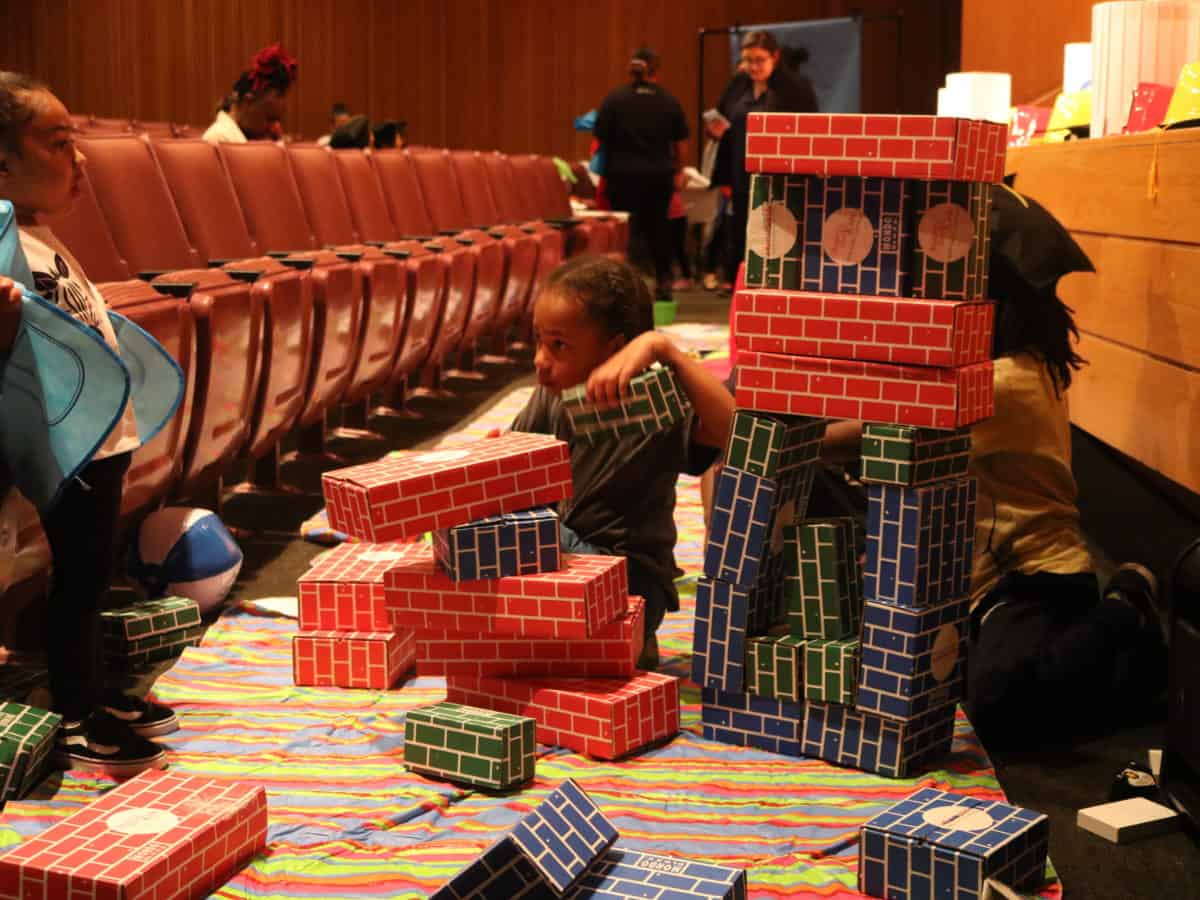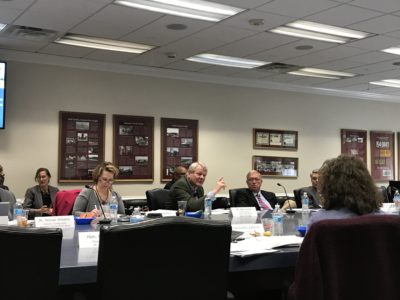
Since 2014 budget cuts left the North Carolina Infant-Toddler program with 160 fewer employees, the reduced workforce is connecting more young children with medical conditions and developmental delays to specialized services.
“Since then, we’ve not only not recuperated the greater toll of those positions, but our enrollment rates have increased over 10%,” said Sharon Loza, coordinator of the program’s early intervention branch.
A recommendation from the governor’s Leandro commission calls for more support for the program’s early intervention branch, which falls under the federal Individuals with Disabilities Education Act and is paid for with a mix of state and federal dollars.
The recommendation also suggests widening the program’s eligibility rules, making services available to a larger population. The early intervention program screens about 21,000 children under age 3 each year through 16 local agencies, called Children’s Developmental Service Agencies (CDSAs).
Loza said expansion would mean more help for children in an important period of brain development — and less need for support later in school.
“The earlier we identify children and serve them, the better their outcomes are, and not only for the child and family themselves, but there’s also research to suggest that there are fiscal gains — that children will no longer need as many special education services, that they actually have less delays by getting the earlier intervention,” Loza said.
Families could hear about their local CDSA through a variety of community partners, Loza said, but most referrals come from pediatricians.
When children arrive, staff assess each child and determine whether he or she is eligible. Right now, “eligible” means that the child is 25% behind in two developmental domains, is 30% behind in one domain or has an established medical condition.
Families of all income levels can receive services. Loza said 75% of families now being served are eligible for Medicaid.
Staff then work with families of eligible children to come up with Individualized Family Services Plans (IFSPs) — which are similar to Individualized Education Plans (IEPs) that children have once they reach school settings. Loza said staff members work with families to decide what goals they want their children to reach.
“Those goals really drive what services and supports are provided to the family,” she said. Families are often connected with local providers for speech or physical therapy, medical services, family counseling, or social work.
The commission’s recommendation suggests the term “at-risk children” be placed in the program’s eligibility requirements to expand the program’s reach. Loza said that she does not know exactly what “at-risk” will mean, but that other states have rubrics that include such factors as maternal depression, adverse childhood experiences, and income level.
During a briefing Friday on early-education recommendations from the governor’s commission and also from the court-ordered outside consultant WestEd, Henrietta Zalkind, executive director of the Down East Partnership for Children and head of the early childhood working group of the governor’s commission, pointed out that the early-intervention recommendation is one of the only differences between her group’s suggestions and the those from WestEd. Both groups were tasked with recommending ways for the state to meet its constitutional obligation to provide all children a sound, basic education in the decades-long lawsuit commonly called “Leandro.”
Mental health support for young children, as well as access to high-quality care and education, were mentioned throughout both groups’ recommendations as crucial pieces to the state living up to that obligation.
Zalkind said Friday that NC Pre-K, the state’s public preschool for 4-year-olds, which determines children’s eligibility by income level, could be more effective if children in need of extra support got access to resources before preschool. Research has shown that NC Pre-K leads to higher test results and less special education placement — and that the gains last as late as eighth grade.
“Our framework was, start early where the brain research and science say you can get the biggest bang for the buck … identify the kids at risk early before they get to NC Pre-K so that NC Pre-K is really serving the most at-risk kids who are coming to those programs already identified so that you are really prepared to make the best use of that first year before kindergarten,” Zalkind said.
Zalkind said this could also be a way to identify children who should be enrolled in NC Pre-K, which now reaches less than half of eligible 4-year-olds for a variety of reasons such as transportation challenges, lack of high-quality teachers, and space.
“I also think that this is one of the issues around doing ‘child find’ for NC Pre-K so that we are identifying who really are those kids who need to be in NC Pre-K — and that’s not one of the things that there’s been money for to date,” Zalkind said.
Judge David Lee signed a consent order in January calling for the parties to create short-term, middle-term, and long-term plans on how the state should move forward with WestEd’s recommendations. The first report is due in less than two months.



